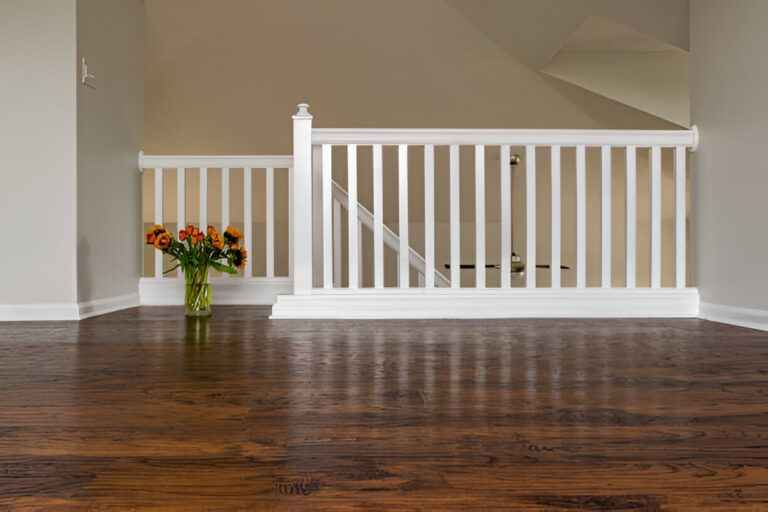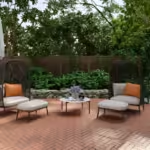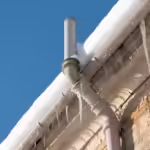Starting your home garden can be exciting but also overwhelming. With so many garden seeds out there, it’s hard to choose. Companies like Burpee, Park Seed, and Eden Brothers offer a variety of seeds. Think about your climate and how long the plants grow to pick the best seeds.
Heirloom seeds are also worth considering. They have unique traits and a rich history. They can add something special to your garden.
Choosing the right seeds is key to a great garden. Look at what Johnny’s Selected Seeds, Baker Creek Heirloom Seeds, and Hudson Valley Seed Co have. They offer many types of seeds, including vegetables and flowers. With the right seeds and gardening skills, you can have a garden that’s both beautiful and productive.
Understanding Different Types of Garden Seeds
Choosing the right seeds is key for a good harvest in gardening. There are many types, like heirloom, hybrid, and open-pollinated seeds. Heirloom seeds have unique traits and are loved by gardeners who value genetic diversity.
Hybrid seeds, on the other hand, are bred for traits like disease resistance and higher yields. But, they might not produce seeds that are the same as the parent plant.
Non-GMO seeds are a natural choice for gardeners. They are a good alternative to genetically modified seeds. Open-pollinated seeds, like heirloom seeds, are also popular for saving seeds from plants. Some key traits of these seeds include:
- Heirloom seeds: unique, diverse, and often saved for future planting
- Hybrid seeds: bred for specific traits, higher yields, and disease resistance
- Open-pollinated seeds: allow for seed saving and are often preferred by gardeners
- Non-GMO seeds: natural, non-genetically modified, and a popular choice for organic gardening
Knowing the differences between these seeds helps gardeners make better choices. This ensures a successful and fruitful harvest.
Factors to Consider When Choosing Seeds
When picking seeds for your garden, think about a few key things. First, check if the seeds match your local climate. Some seeds do better in certain weather. Also, know how long it takes for the seeds to grow. This is important because some seeds take longer than others to be ready.
Another thing to think about is how well the seeds resist pests. Some seeds are more likely to get sick or attract pests. These are important factors to keep in mind.
By thinking about these things, you can pick the best seeds for your garden. For example, if you have a short growing season, choose seeds that grow fast. If you want to avoid pests, pick seeds that are known to be pest-resistant. Some seeds also do better in extreme weather, making them great for tough climates.
Here are some key factors to consider when choosing seeds:
- Climate compatibility: Check the plant hardiness zone and the number of days to harvest to ensure the seeds will thrive in your area.
- Growth duration: Choose seeds with a growth duration that fits your gardening schedule and climate.
- Pest resistance: Opt for seeds that are resistant to common pests and diseases in your area.
By considering these factors and choosing the right seed varieties, you can ensure a successful harvest and enjoy the benefits of gardening. Always check the specific needs of each seed variety, including seed spacing, planting depth, and germination time, to give your garden the best chance of success.

| Seed Variety | Climate Compatibility | Growth Duration | Pest Resistance |
|---|---|---|---|
| Tomato | Warm weather | 60-90 days | Medium |
| Pepper | Warm weather | 70-100 days | High |
| Lettuce | Cool weather | 40-60 days | Low |
Where to Buy Quality Garden Seeds
There are many places to buy garden seeds. You can check out local garden centers for expert advice and a wide variety of seeds. Or, you can look online at places like Burpee, Park Seed, and Eden Brothers for lots of seed options.
Seed exchanges are also a good choice. They let you swap seeds with other gardeners and find new ones. Online, you can find Seed Savers Exchange, Rare Seeds, and Johnny’s Selected Seeds. They have rare and heirloom seeds and give lots of details about each one.
Here are some popular places to buy garden seeds:
- Local garden centers: Visit local nurseries or gardening stores in your area for personalized advice and a wide selection of seeds.
- Online retailers: Browse online stores like Burpee, Park Seed, and Eden Brothers for a vast selection of seed packets and bulk purchases.
- Seed exchanges: Join online communities or local gardening groups to swap seeds with other gardeners and discover new varieties.
Some online stores, like Eden Brothers, let you pick your own seed packets and buy in bulk. Others, like Seed Savers Exchange, focus on rare and heirloom seeds. This gives you a chance to try unique and exotic varieties.
| Online Retailer | Specialty | Shipping |
|---|---|---|
| Eden Brothers | Customizable seed packets and bulk purchases | Standard shipping $4.99 |
| Seed Savers Exchange | Rare and heirloom seeds | Free shipping on orders over $250 |
| Johnny’s Selected Seeds | Hardiness and disease resistance | Same-day shipping |
Best Vegetables to Grow from Seed
Some vegetables are easier to grow from seed than others. Tomatoes, peppers, and lettuce are favorites among gardeners. They grow well in many conditions.
These vegetables grow fast. Lettuce is ready in 20 days. Tomatoes and peppers take 60-90 days. This is great for gardeners who want quick results.
Here are some tips for growing these vegetables from seed:
- Start with high-quality vegetable seeds that are specific to your climate and region.
- Make sure the soil is well-prepared and has the right nutrients for growth.
- Provide enough water and sunlight, and keep the soil moist.
By following these tips and choosing the right seeds, you can enjoy a big harvest. Whether you’re new to gardening or experienced, growing these vegetables is rewarding.
| Vegetable | Days to Harvest | Special Requirements |
|---|---|---|
| Tomatoes | 60-90 days | Full sun, well-drained soil |
| Peppers | 60-90 days | Full sun, well-drained soil |
| Lettuce | 20-40 days | Partial shade, consistent moisture |
Recommended Flowers for Your Garden
Choosing the right flower seeds is key to adding color and vibrancy to your garden. Sunflowers, marigolds, and zinnias are great because they grow easily and thrive in many conditions. They make your garden beautiful and attract pollinators, which help your veggies.
Sunflowers stand tall with big, bright yellow flowers. They’re easy to start from seed, indoors 4 weeks before the last frost. Marigolds and zinnias are simple to grow too. Marigold seeds go in the ground 6 to 8 weeks before the last frost. Zinnias start indoors 4 to 6 weeks before, and they love the heat.
These flowers are grown from flower seeds and bring many benefits. They attract pollinators and make your garden lively. With the right seeds and care, you’ll have a stunning garden. Whether you’re new or experienced, sunflowers, marigolds, and zinnias are great picks.
Some important tips for growing these flowers include:
- Start seeds indoors at the right time for best growth.
- Make sure they have the right conditions for germination and growth.
- Harvest zinnias regularly to get more blooms.
Proper Seed Starting Techniques
Starting seeds right is key for a successful garden. Soaking seeds can speed up germination. Also, the right germination conditions help seeds grow into strong seedlings.
For seed starting, use a sterile mix and soak seeds. This helps them germinate well. Transplanting seedlings at the right time also prevents shock.
Here are some tips for successful seed starting:
- Use a sterile seed starting mix to prevent disease
- Soak seeds to help them germinate
- Provide optimal germination conditions, including temperature and light
- Transplant seedlings at the right time to prevent shock

By following these tips, you can make your garden thrive. Keep the soil moist but not too wet. Make sure your seedlings get enough light. With practice and patience, you’ll get great at seed starting and enjoy growing your own plants.
| Seed Type | Germination Conditions | Transplanting Time |
|---|---|---|
| Tomatoes | 70-80°F, 12-14 hours of light | 1-2 weeks after germination |
| Peppers | 75-85°F, 14-16 hours of light | 2-3 weeks after germination |
| Lettuce | 60-70°F, 10-12 hours of light | 1-2 weeks after germination |
Tips for Storing Leftover Seeds
As you finish planning your garden and picking seeds, remember to store leftover seeds right. Saving seeds is a smart way to cut down on waste and save cash. But, it needs some careful steps. Knowing the best storage, preservation, and shelf life of seeds helps keep them good for future gardens.
Ideal Storage Conditions
Keep seeds fresh by storing them in a cool, dry spot with low humidity. Aim for a relative humidity under 60% to keep seeds alive longer. High temperatures over 90°F can shorten seed life, so a fridge or cool basement is best.
Preservation Methods
Use methods like freezing or dehydrating to protect your seeds. Freezing in an airtight container can extend their life. Dehydrating with a desiccant like powdered milk or rice can remove moisture. Store seeds in sealed jars or containers to keep them quality over time.
Shelf Life of Seeds
Knowing how long different seeds last helps you use your leftovers wisely. Tomatoes, lettuce, beans, and peas can last 5-10 years with proper storage. But, seeds like parsnips might only last 1-2 years. A simple germination test before planting can confirm if your seeds are still good.
FAQ
What are the different types of garden seeds?
Garden seeds come in three main types: heirloom, hybrid, and open-pollinated. Heirloom seeds have unique traits and genetic diversity. Hybrid seeds are more resistant to diseases and yield more. Open-pollinated seeds, like heirloom, can be saved and replanted.
What factors should I consider when choosing seeds for my garden?
When picking seeds, think about the climate, growth time, and pest resistance. Choose seeds that match your local climate and growing conditions for a good harvest. Also, consider how long it takes for a plant to grow and its resistance to pests and diseases.
Where can I buy quality garden seeds?
You can find quality seeds at local garden centers, online, or through seed exchanges. Local centers have experts who can help you choose the right seeds. Online stores have a wide variety, and seed exchanges let you swap seeds with others.
What are some of the best vegetables to grow from seed?
Tomatoes, peppers, and lettuce are great for growing from seed. They’re easy to grow and do well in many conditions. With the right seeds and care, you’ll get a lot of fresh, tasty veggies.
What are some recommended flowers to grow from seed?
Sunflowers, marigolds, and zinnias are easy to grow and add beauty to your garden. They also attract pollinators.
How do I properly start seeds indoors?
Start seeds indoors by soaking them to speed up germination. Provide the right conditions for germination. Transplant seedlings carefully to avoid shock. This will help your garden thrive.
How can I store leftover seeds for future use?
Store leftover seeds in a cool, dry place. Freezing or dehydrating can also keep them fresh longer. Knowing how long different seeds last helps you use them in future seasons.








